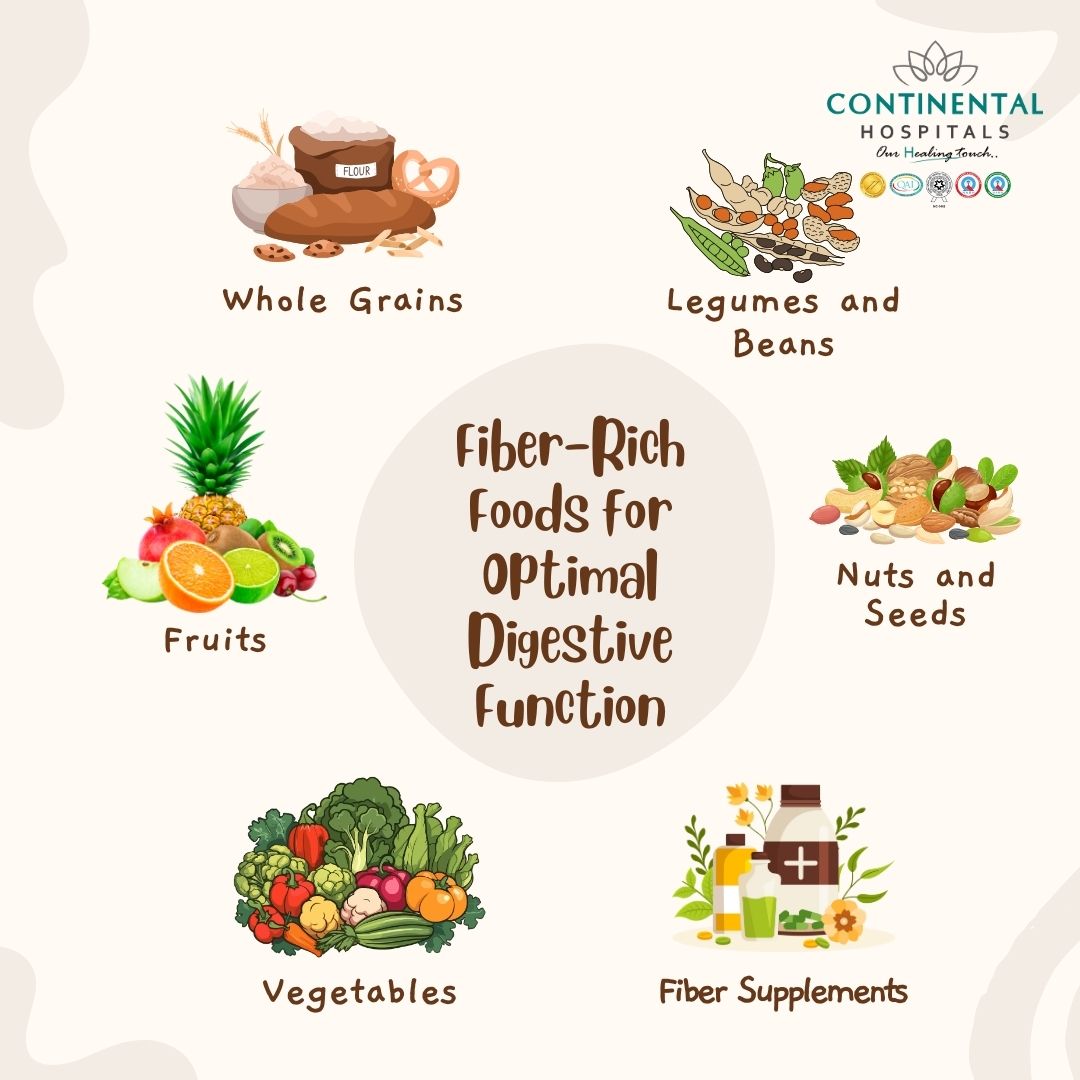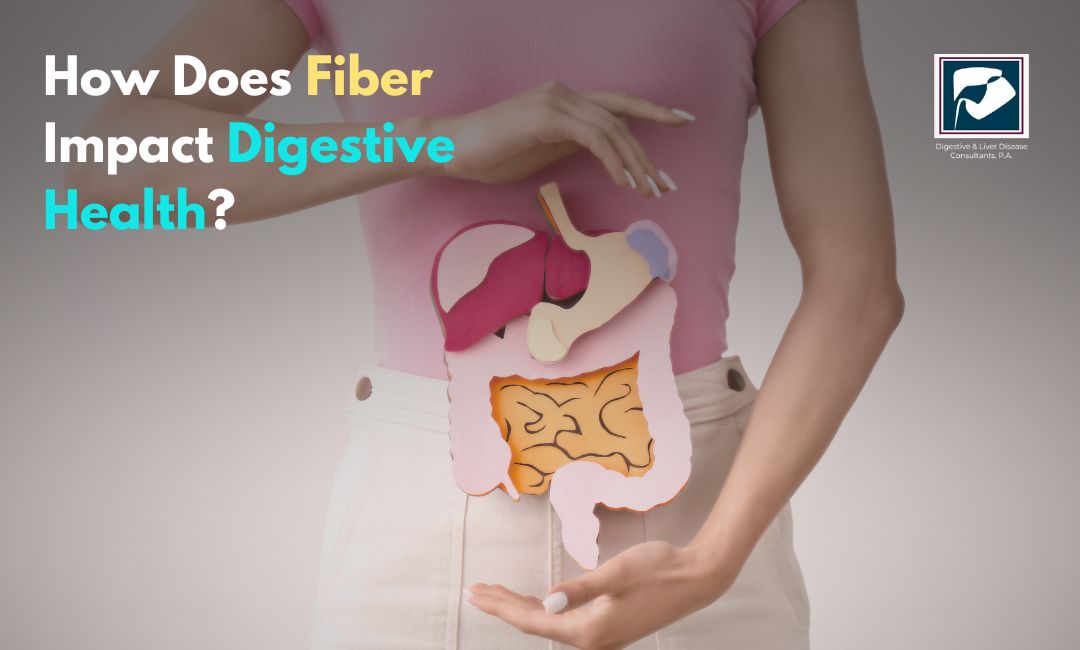Fiber is an essential component of a healthy diet, but its importance goes beyond general health—it plays a critical role in digestive wellness. Whether you're looking to relieve constipation, prevent digestive diseases, or improve overall gut health, fiber can be your best ally. In this article, we'll explore the various ways fiber supports your digestive system and highlight fiber-rich foods to help you maintain a healthy gut.
What is Fiber and How Does it Support Digestive Health?
Fiber is a type of carbohydrate that the body cannot digest. Unlike other carbs that are broken down into sugar molecules, fiber passes through the digestive system mostly intact. This characteristic allows fiber to perform several vital functions, especially when it comes to digestive health.
There are two types of fiber: soluble and insoluble. Both types play a different but complementary role in digestion:
Soluble fiber dissolves in water and forms a gel-like substance in the gut. It helps lower blood cholesterol levels and can help stabilize blood sugar levels. It also slows down digestion, which can provide relief for conditions like diarrhea.
Insoluble fiber, on the other hand, does not dissolve in water and adds bulk to stool. It helps food and waste move through the digestive tract, promoting regular bowel movements. This type of fiber is particularly effective in preventing constipation.

Top Fiber-Rich Foods for Optimal Digestive Function
Incorporating fiber into your diet is easier than you might think. Many natural, whole foods are high in fiber and can contribute to your overall digestive health. Here are some of the best fiber-rich foods to include in your meals:
Whole Grains: Foods like oats, barley, quinoa, and whole wheat bread are excellent sources of fiber. They are rich in both soluble and insoluble fiber, making them a great choice for promoting healthy digestion.
Fruits: Berries, apples, pears, and bananas are all fiber-packed options that are easy to incorporate into snacks or meals. The skin of many fruits contains high amounts of insoluble fiber, which helps with bowel regularity.
Vegetables: Leafy greens, broccoli, carrots, and artichokes are great sources of fiber. Vegetables provide both soluble and insoluble fiber, which aids digestion and keeps things moving smoothly in the gut.
Legumes and Beans: Lentils, chickpeas, black beans, and kidney beans are excellent sources of fiber and protein. Adding legumes to your diet can improve digestion and help regulate blood sugar levels.
Nuts and Seeds: Almonds, chia seeds, flaxseeds, and walnuts are high in fiber and healthy fats. These foods can help you feel full longer and support healthy digestion.
The Impact of Fiber on Common Digestive Issues
Fiber plays an essential role in preventing and alleviating many common digestive problems. Here are some of the ways it can benefit digestive health:
Constipation Relief: One of the most well-known benefits of fiber is its ability to alleviate constipation. Insoluble fiber adds bulk to stool and helps it pass more easily through the intestines, preventing the discomfort and bloating that often accompanies constipation.
Improving Gut Health: Fiber is crucial for maintaining a healthy balance of bacteria in the gut. A diet rich in fiber feeds the beneficial bacteria in the intestines, supporting a strong gut microbiome. This can enhance digestion, boost immunity, and reduce the risk of chronic digestive diseases.
Regulating Bowel Movements: Fiber helps regulate bowel movements, reducing both diarrhea and constipation. Soluble fiber can absorb excess water in the intestines, firming up loose stools, while insoluble fiber helps move waste along more efficiently.
Preventing Digestive Disorders: Fiber-rich diets have been linked to a lower risk of several gastrointestinal disorders, including diverticulosis, hemorrhoids, and even colon cancer. By improving digestion and regularity, fiber may reduce the likelihood of these conditions developing.
The Right Amount of Fiber for Digestive Health
To reap the benefits of fiber, it's important to consume an adequate amount. The daily recommended intake of fiber is 25 grams for women and 38 grams for men. However, most people fall short of this goal. Gradually increasing fibre intake and drinking plenty of water can help prevent digestive discomfort as your body adjusts to higher fiber levels.
Conclusion
Fiber is undeniably important for digestive health. From alleviating constipation to supporting a healthy gut microbiome, its benefits are numerous. By including fiber-rich foods in your diet, you can improve digestion, prevent common digestive issues, and enhance your overall health. Remember to consume a variety of fiber-rich foods and drink plenty of water to support optimal digestion.
If you have specific digestive health concerns, it’s always a good idea to consult with our best gastroenterologist., to determine the right type and amount of fiber for your needs.






